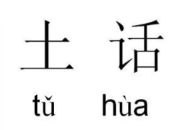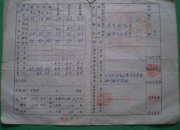学英语作文
时间:2021-08-31【推荐】学英语作文汇总八篇
在平时的学习、工作或生活中,大家总少不了接触作文吧,借助作文可以宣泄心中的情感,调节自己的心情。那么问题来了,到底应如何写一篇优秀的作文呢?下面是小编收集整理的学英语作文8篇,欢迎大家分享。
学英语作文 篇1
Long long ago, there was a big forest in South American. It was very beautiful. There were three rabbits, Lisa and two baby rabbits, Sally and Mary. They were happy.
One day, mother rabbit told her babies not to eat the grass beside the house. Then, she went away. When Lisa wasn’t at home, Sally was very hungry. She forgot that her mother told them not to eat the grass beside the house. So she went out to eat the grass beside her house.
A wolf saw the baby rabbit. He thought what a delicious supper. Then he ate Sally. Mary was surprised when she saw her sister was killed. She ran as quickly as she could and found her mother.
The mother rabbit was sad when she heard this news. But she said to Mary, “Remember! Don’t eat the grass beside your house!”
So as you see now, the rabbits never eat the grass beside their houses.
学英语作文 篇2
no signs, where the soft, unbroken snow seemed to advertise solidity beneath, tee man broke through。 it was not deep。 he wet himself halfway to the knees before he floundered out to the firm crust。
he was angry, and cursed his luck aloud。 he had hoped to get into camp with the boys at si oclock, and this would delay him an hour, for he would have to build a fire and dry out his foot-gear。 this was imperative at that low temperature--he knew that much; and he turned aside to the bank, which he climbed。 on top, tangled in the underbrush about the trunks of several small spruce trees, was a high-water deposit of dry firewood--sticks and twigs, principally, but also larger portions of seasoned branches and fine, dry, last-years grasses。 he threw down several large pieces on top of the snow。 this served for a foundation and prevented the young flame from drowning itself in the snow it otherwise would melt。 the flame he got by touching a match to a small shred of birch bark that he took from his pocket。 this burned even more readily than paper。 placing it on the foundation, he fed the young flame with wisps of dry grass and with the tiniest dry twigs。
he worked slowly and carefully, keenly aware of his danger。 gradually, as the flame grew stronger, he increased the size of the twigs with which he fed it。 he squatted in the snow, pulling the twigs out from their entanglement in the brush and feeding directly to the flame。 he knew there must be no failure。 when it is seventy-five below zero, a man must not fail in his first attempt to build a fire--that is, if his feet are wet。 if his feet are dry, and he fails, he can run along the trail for half a mile and restore his circulation。 but the circulation of wet and freezing feet cannot be restored by running when it is seventy-five below。 no matter how fast he runs, the wet feet will freeze the harder。
all this the man knew。 the old-timer on sulphur creek had told him about it the previous fall, and now he was appreciating the advice。 already all sensation had gone out of his feet。 to build the fire he had been forced to remove his mittens, and the fingers had quickly gone numb。 his pace of four miles an hour had kept his heart pumping blood to the surface of his body and to all the etremities。 but the instant he stopped, the action of the pump eased down。 the cold of space smote the unprotected tip of the planet, and he, being on that unprotected tip, received the full force of the blow。 the blood of his body recoiled before it。 the blood was alive, like the dog, and like the dog it wanted to hide away and cover itself up from the fearful cold。 so long as he walked four miles an hour, he pumped that blood, willy-nilly, to the surface; but now it ebbed away and sank down into the recesses of his body。 the etremities were the first to feel its absence。 his wet feet froze the faster, and his eposed fingers numbed the faster, though they had not yet begun to freeze。 nose and cheeks were already freezing, while the skin of all his body chilled as it lost its blood。
but he was safe。 toes and nose and cheeks would be only touched by the frost, for the fire was beginning to burn with strength。 he was feeding it with twigs the size of his finger。 in another minute he would be able to feed it with branches the size of his wrier, and then he could remove his wet toot-gear, and, while it dried, he could keep his naked feet warm by the fire, rubbing them at first, of course, with snow。 the fire was a success。 he was safe。 he remembered the advice of the old timer on sulphur creek, and smiled。 the old-timer had been very serious in laying down the law that no man must travel alone in the klondike after fifty below。 well, here he was; he had had the accident; he was alone; and he had saved himself。 those old-timers were rather womanish, some of them, he thought。 all a man had to do was to keep his head, and he was all right。 any man who was a man could travel alone。 but it was surprising, the rapidity with which his cheeks and nose were freezing。 and he had not thought his fingers could go lifeless in so short a time。 lifeless they were, for he could scarcely make them move together to grip a twig, and they seemed remote from his body and from him。 when he touched a twig, he had to look and see whether or not he had hold of it。 the wires were pretty well down between him and his finger-ends。
all of which counted for little。 there was the fire, snapping and crackling and promising life with every dancing flame。 he started to untie his moccasins。 they were coated with ice; the thick german socks were like sheaths of iron halfway to the knees; and the moccasin strings were like rods of steel all twisted and knotted as by some conflagration。 for a moment he tugged with his numb fingers, then, realizing the folly of it, he drew his sheath-knife。
but before he could cut the strings, it happened。 it was his own fault or, rather, his mistake。 he should not have built the fire under the spruce tree。 he should have built it in the open。 but it had been easier to pull the twigs from the brush and drop them directly on the fire。 now the tree under which he had done this carried a weight of snow on its boughs。 no wind had blown for weeks, and each bough was fully freighted。 each time he had pulled a twig he had communicated a slight agitation to the tree--an imperceptible agitation, so far as he was concerned, but an agitation sufficient to bring about the disaster。 high up in the tree one bough capsized its load of snow。 this fell on the boughs beneath, capsizing them。 this process continued, spreading out and involving the whole tree。 it grew like an avalanche, and it descended without warning upon the man and the fire, and the fire was blotted out! where it had burned was a mantle of fresh and disordered snow。
the man was shocked。 it was as though he had just heard his own sentence of death。 for a moment he sat and stared at the spot where the fire had been。 then he grew very calm。 perhaps the old-timer on sulphur creek was right。 if he had only had a trail-mate he would have been in no danger now。 the trail-mate could have built the fire。 well, it was up to him to build the fire over again, and this second time there must be no failure。 even if he succeeded, he would most likely lose some toes his feet must be badly frozen by now, and there would be some time before the second fire was ready。
such were his thoughts, but he did not sit and think them。 he was busy all the time they were passing through his mind。 he made a new foundation for a fire, this time in the open, where no treacherous tree could blot it out。 net, he gathered dry grasses and tiny twigs from the high-water flotsam。 he could not bring his fingers together to pull them out, but he was able to gather them by the handful。 in this way he got many rotten twigs and bits of green moss that were undesirable, but it was the best he could do。 he worked methodically, even collecting an armful of the larger branches to be used later when the fire gathered strength。 and all the while the dog sat and watched him, a certain yearning wistfulness in its eyes, for it looked upon him as the fire-provider, and the fire was slow in coming。
when all was ready, the man reached in his pocket for a second piece of birch bark。 he knew the bark was there, and, though he could not feel it with his fingers, he could hear its crisp rustling as he fumbled for it。 try as he would, he could not clutch hold of it。 and all the time in his consciousness, was the knowledge that each instant his feet were freezing。 this thought tended to put him in a panic, but he fought against it and kept calm。 he pulled on his mittens with his teeth, and threshed his arms back and forth, beating his hands with all his might against his sides。 he did this sitting down, and he stood up to do it; and all the while the do,g sat in the snow, its wolf-brush of a tail curled around warmly over its forefeet, its sharp wolf











